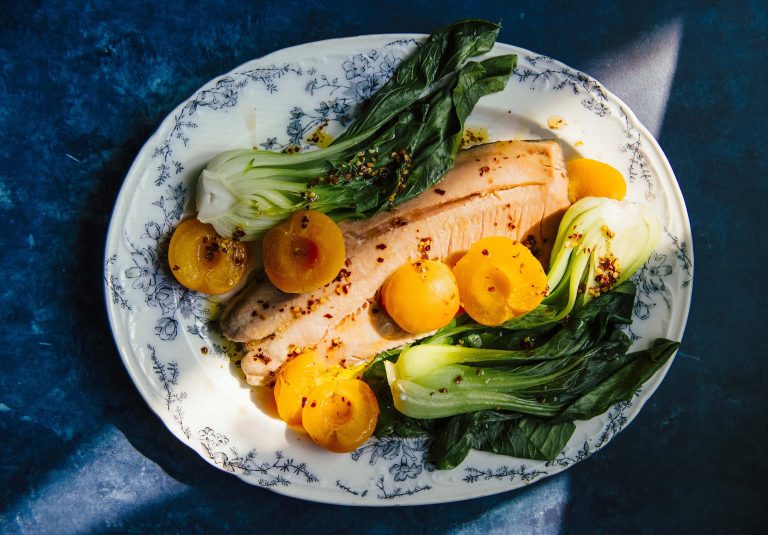
I was recently asked what excites me about cooking now that spring is underway. My answer wasn’t a specific recipe, but rather, the feeling I get from finding new ways to cook with seasonal ingredients. While I have my repertoire of go-to recipes, basic preparations, and no-cook ideas, I want to spend time this season exploring new ways of bringing joy to my cooking. And I’m letting my cookbook collection lead the way. The new cookbook I’m especially excited to dive into is Chef Abra Berens‘ latest: Pulp. And the recipe that’s truly blown me away (and that I’ll be making all spring long) is this simple poached salmon with gingered apricots.
But readers, this isn’t just any old poached salmon dish. While I think of fruit as more of a snack, as part of my proclamation to celebrate seasonal ingredients, I’m following Berens’ lead and showcasing it as the star of sweet and savory recipes alike.
It’s an approach to cooking that blends well with the ease and simultaneous elegance of the season. Berens’ new cookbook highlights both the simplicity of cooking with the seasons and the innovation to be found in leveraging a new technique. And at the core of it all is a careful, well-attuned understanding of flavor—how an ingredient as simple as an apricot or berry can elevate and transform a recipe.
We chatted with Berens about her favorite flavor pairings, how to choose the best piece of fruit every time, and why this simple poached salmon recipe is perfect for any weeknight.
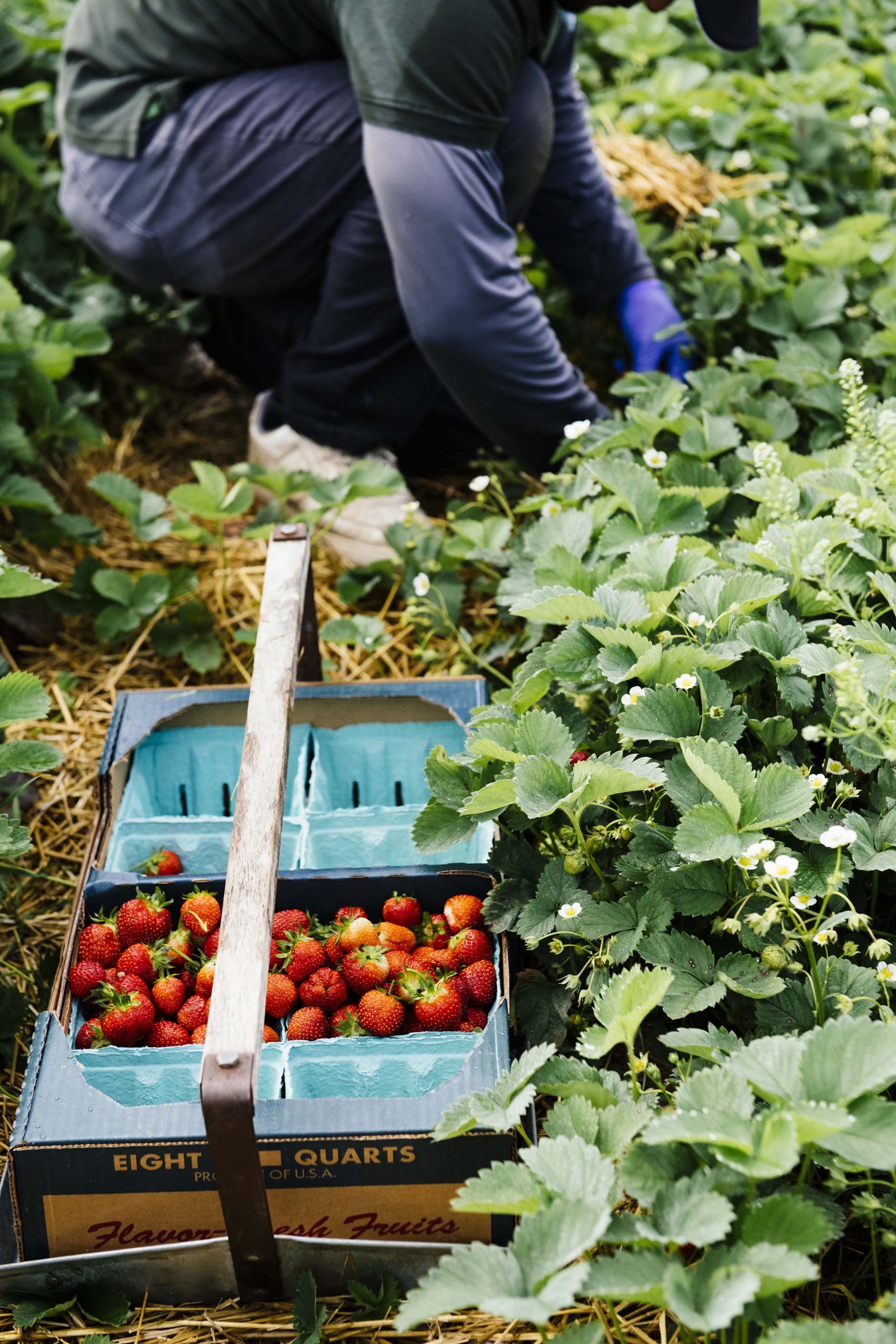
How would you describe your cooking and food philosophy and how has it influenced recipes like this one?
My cooking and food philosophy is ingredient-focused. I like familiar combinations and adding a gentle twist that feels interesting but not forced or out of left field. And ideally, I want my recipes to be efficient so that you have energy after cooking the meal to sit and enjoy it without a mountain of dishes.
For this recipe, I wanted to showcase the delicate flavor of apricots by poaching them, which is also handy because it can be done in advance. Then the bok choy and salmon are steamed at the same time for ease and efficiency.
What was your process for developing this recipe?
I tend to develop recipes by tasting the primary ingredient that I want to showcase and thinking about flavor combinations that would complement it. The combination of flavors for this dish—ginger, chili, salmon, and bok choy—are inspired by Thai cuisine but pulled together to highlight the apricots.
What makes this recipe your go-to?
I love this recipe because it meets all my requirements for a dish. It is super tasty while still being light, it feels a touch out of the ordinary by featuring apricots in such a savory application, and it is easy and efficient enough to achieve as a midweek meal.
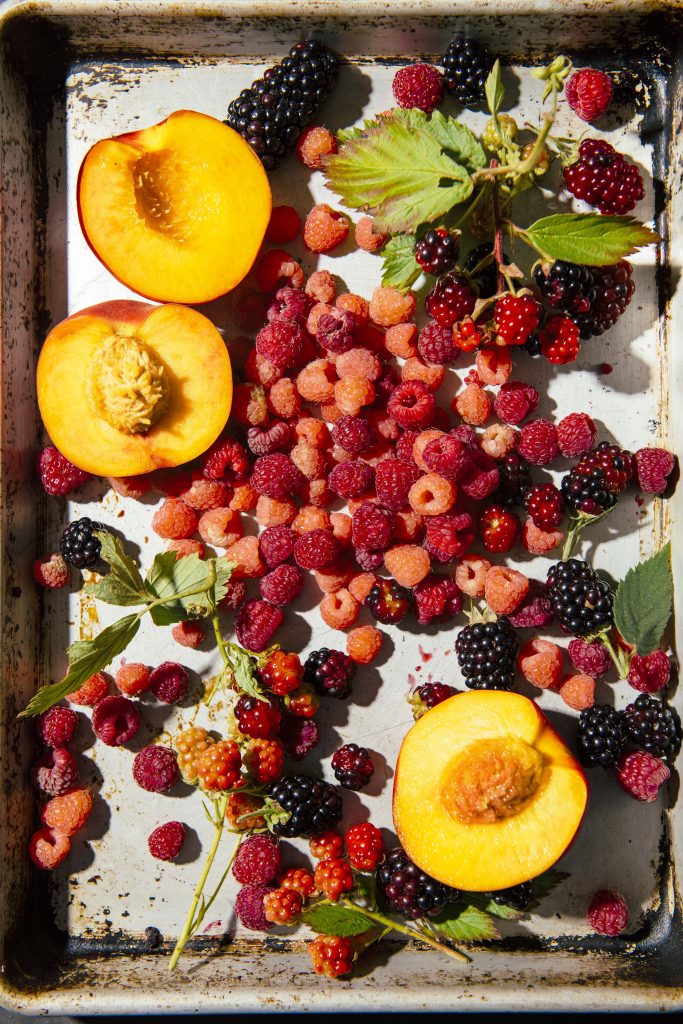
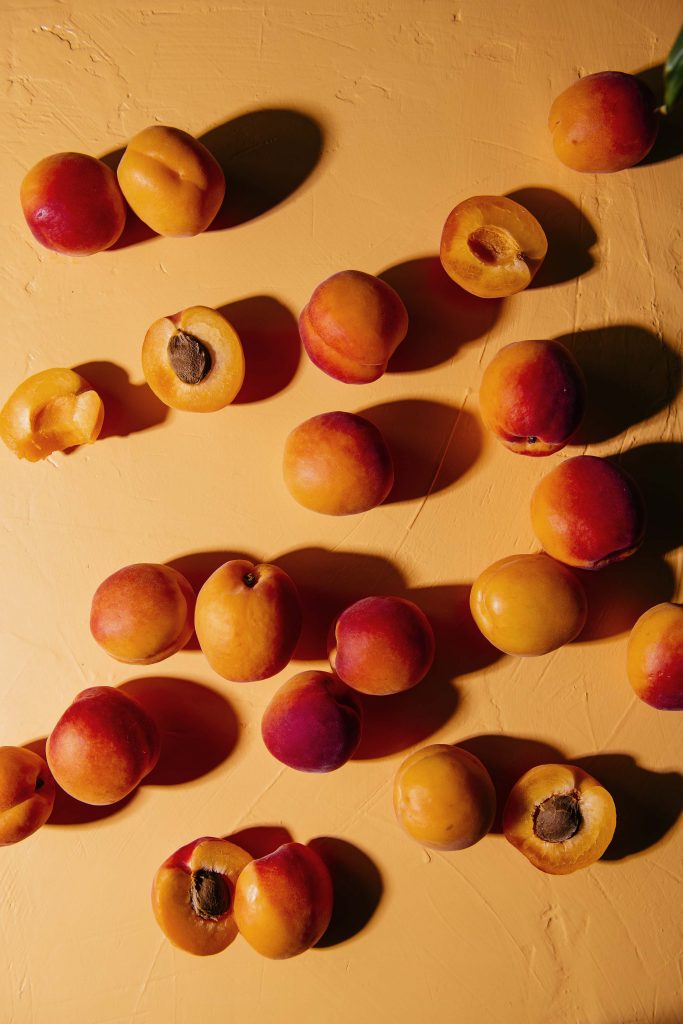
Can this recipe be made with minimal tools?
Both the apricots and the chili oil can be made in advance so the final cooking is in one pan. I tried making it by poaching all of the ingredients in the same poaching liquid as the apricots and that didn’t pan out. One of my goals is to be sure that if a recipe has extra steps or pans, it is really worth it. This is one of those cases.
Is there a kitchen tool you recommend we have to make this dish?
I love a steamer basket. It is not fancy, inexpensive, and pretty old school. But I have been steaming more and find that it keeps the flavors very delicate, which often pairs well with a very flavorful condiment.
What are your favorite standout ingredients in this recipe?
The apricots and bok choy. I was surprised by how well they paired together. They share a subtle sweetness and vegetal quality that really worked.
Are there any ingredients swaps
What are some ingredient swaps to know about?
I love that this dish is free of most allergens. If you don’t eat fish, I would substitute chicken breasts or tofu. If you don’t have apricots, I would use peaches or even plums.
We love a good cooking hack. What techniques make this recipe special?
It isn’t really a hack, but I rely on super flavorful condiments to make simply prepared dishes super tasty. In this dish, the chili oil and flavors in the poaching liquid add a ton.
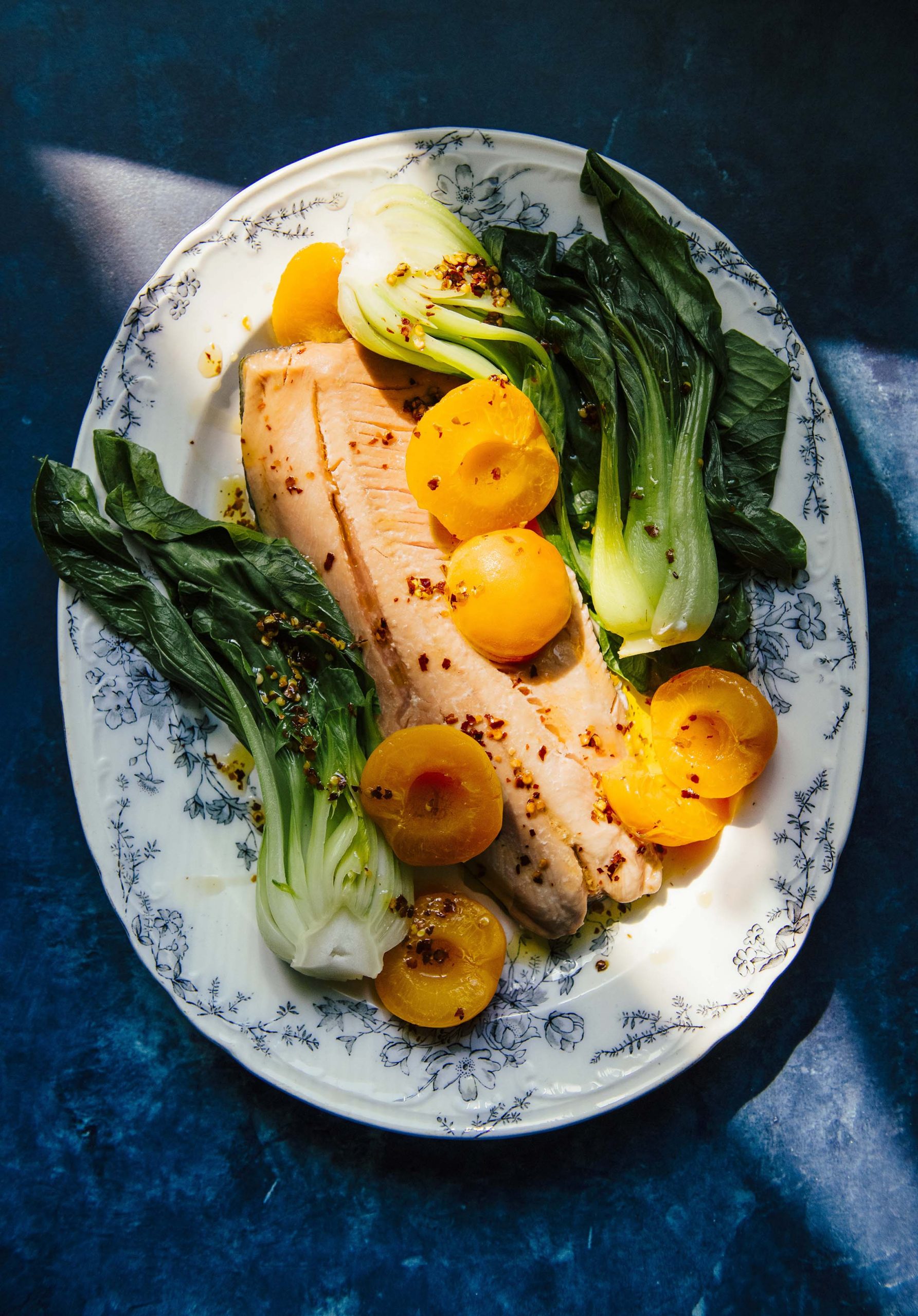
Can you share any quick tips for choosing the best seasonal produce?
Fruit tells you when it is ready. It should look appealing, it should smell great, and be generally inviting. That’s the first step. The second is that even the most scrutinized fruit can be disappointing. I find that either cooking or adding some sweetness or acid can salvage a disappointing piece of fruit. The cooking concentrates the flavor. Acid, like citrus or vinegar, lifts the existing flavor. Sweetness, adding sugar or honey, will mimic the sweetness found in a perfect piece of fruit when it is naturally lacking.
What do you hope people feel or learn when they make one of your recipes?
I hope that readers feel confident after cooking one of my recipes. I write these recipes to have a bit of flexibility in them, so if you don’t have apricots (for example) you feel confident swapping in another fruit. I also hope that once making this recipe, readers will feel confident steaming salmon and bok choy even when not following this recipe. That poached fruit, chili oil, or steamed salmon will become part of the repertoire.
What other recipes from your book do you think readers should cook first?
I love the rum plum clafoutis recipe because it is so simple and so good and can be made with a variety of fruit—cherries, cranberries, rhubarb, or even blueberries. I also hope people make the brined cherries and salty snacks. It is such a surprising combination of flavors and is perfect for summertime happy hours!
Scroll on for the recipe for Abra’s Ginger Poached Apricots and Salmon, and if you make this poached salmon, be sure to leave a rating and comment below.
Pulp: A Practical Guide to Cooking with Fruit by Abra Berens, © 2023. Published by Chronicle Books. Photographs © EE Berger.

Ginger Poached Apricots and Salmon
 Total Time: 35 minutes
Total Time: 35 minutes
 Yield: 2
Yield: 2
Description
A simple salmon recipe packed with flavor thanks to ginger poached apricots and chili oil.
Ingredients
Units
- 2 cups dry white wine
- 1 orange (about 3 oz [90 ml]), zest and juice
- 1 lemon (about 1.5 oz [45 ml]), zest and juice
- 2 inches of ginger, peeled
- 2 whole star anise pods
- 2 green cardamom pods
- 2 pounds of apricots, halved and pits removed
- 1/4 cup neutral oil
- 2 tablespoons of chili flakes
- 4 salmon fillets (about 4 oz [120 g] each), skin removed
- Salt
- 4 to 6 baby bok choy (about 11/2 lb [680 g])
Instructions
- In a medium pot over medium heat, bring the wine, orange zest and juice, lemon zest and juice, ginger, star anise, and cardamom to a simmer. Add the apricots and poach until tender, about 4 minutes. Remove from the heat and let cool in the poaching liquid.
- In a small frying pan, heat the neutral oil over high heat for about 30 seconds. Remove from the heat and add the chili flakes. Steep for 10 minutes.
- In a large pot fitted with a steamer basket, bring 3 in [7.5 cm] of water to a rapid boil. Season the salmon all over with salt. Transfer carefully to the steamer basket. Steam, covered, for 5 minutes. Add the bok choy and steam for 4 minutes more.
- To serve, place a fillet of the fish on a plate next to a couple of bok choy. Top with a few poached apricot halves and drizzle all over with the chili oil.
 Prep Time: 15 minutes
Prep Time: 15 minutes Cook Time: 20 minutes
Cook Time: 20 minutes Category: Dinner
Category: Dinner
Keywords: salmon, apricots, ginger, chili oil
The post Abra Berens’ Poached Salmon With Apricots Is Sweet, Savory, and What We’re Making This Spring appeared first on Camille Styles.

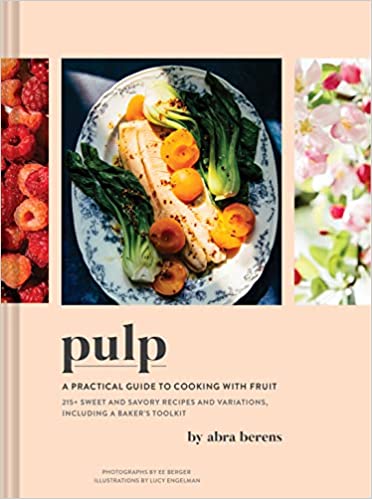
0 Comments